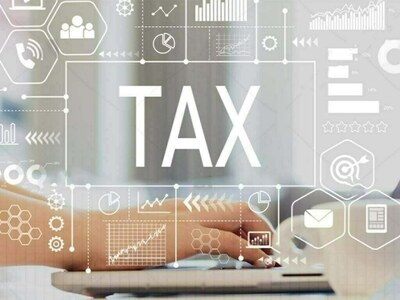Telecom Sector Proposes Sales Tax Reduction in Upcoming Budget
ISLAMABAD: The telecom industry has suggested to the government a reduction in sales tax on telecom services from the existing 19.5 percent to 16 percent in the forthcoming budget for 2025-26. This rate is currently the highest compared to other sectors. The proposal also includes harmonizing the tax rate across the nation, ensuring uniformity among all provinces and the federal capital.
Budget proposals submitted by the IT and Telecom sector to the government also recommended the reinstatement of advance tax to bolster customers’ purchasing power, considering that the majority of consumers fall below the taxable income threshold.
The sector has advocated for the elimination of the 10% advance income tax under Section 236A of the ITO 2001 on new or renewed telecom licenses. They argue that this advance tax inflates operational costs and the cost of capital for the telecom sector, thereby impeding the expansion of 4G/5G networks and rural connectivity.
The proposals highlighted that Cellular Mobile Operators face deductions and collections of withholding income tax on numerous transactions, such as electricity bills for cell sites, which number in the thousands. This increases both the cost and complexity of compliance, placing an additional administrative burden on the telecom sector.
Tax authorities are unable to verify the tax collection claims on these bills, which creates an unnecessary operational burden. Additionally, the withholding tax deducted from telecom services is treated as a minimum tax, which goes against taxation principles since it is levied even during loss-making years. Furthermore, current recovery measures are excessively harsh, causing business disruptions and eroding taxpayers’ confidence. The sector has proposed an exemption from withholding taxes by adding a clause in the 2nd Schedule of ITO 2001. Acceptance of this proposal would render subsequent proposals redundant.
They further proposed that the 4% withholding tax on telecom services under Section 153 should be adjustable rather than a minimum tax. The shift from an adjustable income tax to a minimum tax has effectively transformed income tax from a direct tax to an indirect tax. This is because the amount of tax payable is no longer linked to actual income earned, but is instead a fixed charge applied uniformly, regardless of the company’s profitability.
The sector suggested increasing the carry forward period for minimum tax credit under Section 113 from 3 years to 5 years, reverting to the period prior to the Finance Act 2024. The payback period for the telecom sector is slow, with returns on investment typically taking 8 to 10 years. Consequently, limiting the credit to 3 years is not sustainable for loss-making companies, they added. The proposal also included the removal of regulatory duty rates on telecom power equipment that is not manufactured locally. Moreover, the telecom services sector should be excluded from retail price lists because they do not import goods for direct sale.
Aamir Ibrahim, CEO of Jazz and Chairman of the Telecom Operators Association, stated that over-taxation of telecom not only impacts affordability for consumers but also diminishes investor confidence in a sector that demands continuous innovation and infrastructure improvements.
“Overburdening the telecom sector with excessive taxation is not just economically counterproductive—it’s socially regressive. We must recognize telecom as the digital backbone of every other sector and treat it as such in our fiscal policies,” said CEO Jazz.
Highlighting the role of telecom in the country’s digital future, he noted that connectivity today is as vital as roads and power grids.
“Telecom is the infrastructure that powers e-commerce, mobile banking, online learning, telehealth, and even public service delivery. Yet, we continue to treat it as a revenue stream instead of a strategic enabler. If we are serious about building a future-ready Pakistan, we need to start seeing telecom as a development multiplier, not a luxury,” he added.
He further commented that Pakistan’s tax burden is disproportionately borne by a small group of compliant individuals and industries. To foster a sustainable digital economy, the tax base needs to be broadened—bringing more participants into the formal economy—rather than repeatedly taxing those already contributing. Placing additional pressure on the formal sectors, especially one as foundational as telecom, discourages investment, slows innovation, and undermines long-term growth, he added.
Ibrahim emphasized that every tax on telecom effectively taxes opportunity. Whether it’s a student in rural Balochistan attending a virtual class or a woman entrepreneur using mobile payments to expand her home business, digital access is essential. A more forward-looking fiscal policy would lower barriers to connectivity, making digital inclusion a reality for all Pakistanis.
“Telecom is not a luxury—it is a critical utility, much like electricity or clean water. It enables students to learn, entrepreneurs to sell, farmers to access market information, and patients to receive remote healthcare. Overburdening this sector with excessive taxation is not just economically counterproductive—it’s socially regressive. We must recognize telecom as the digital backbone of every other sector and treat it as such in our fiscal policies,” CEO Jazz reiterated.
Ibrahim further added that over-taxation of telecom not only reduces affordability for consumers but also weakens investor confidence in a sector requiring continuous innovation and infrastructure upgrades. A rationalized tax system, along with initiatives to document the informal economy, would generate more sustainable revenues for the state without compromising the expansion of the digital ecosystem.



Comments (0)
No comments yet. Be the first to comment!
Leave a Comment